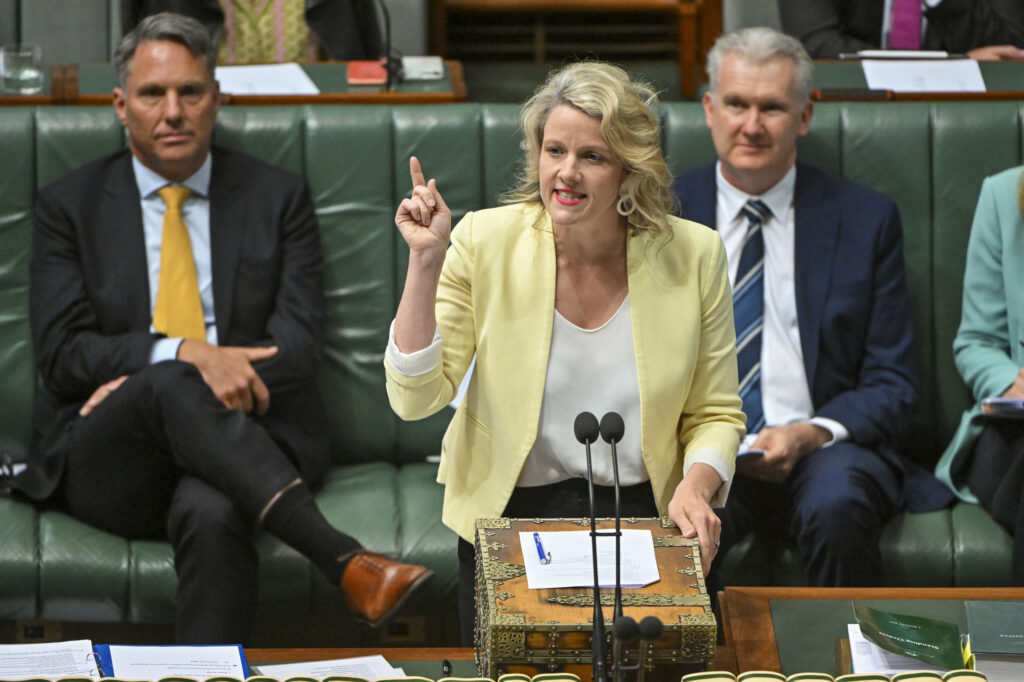
Australian Minister for Home Affairs Clare O'Neil gestures during question time in the House of Representatives at Parliament House in Canberra, Australia, Wednesday, Nov. 29, 2023. The Australian government on Wednesday proposed new laws that would place behind bars some of the 141 migrants who have been set free in the three weeks since the High Court ruled their indefinite detention was unconstitutional. (Mick Tsikas/AAP Image via AP)
The Australian government on Wednesday proposed new laws that would place behind bars some of the 141 migrants who have been set free in the three weeks since the High Court ruled their indefinite detention was unconstitutional.
Home Affairs Minister Clare O’Neil said Parliament would not end sittings for the year as scheduled next week unless new laws were enacted to allow potentially dangerous migrants to be detained.
“We are moving quickly to implement a preventive detention regime,” O’Neil told Parliament.
In 2021, the High Court upheld a law that can keep extremists in prison for three years after they have served their sentences if they continue to pose a danger.
O’Neil said the government intended to extend the preventative detention concept beyond terrorism to crimes including pedophilia.
O’Neil said she would prefer that all 141 had remained in prison-like migrant detention. She declined to say how many would be detained again under the proposed laws.
Human rights lawyers argue the government is imposing greater punishment on criminals simply because they are not Australian citizens.
The government decided on the new legislative direction after the High Court on Tuesday released its reasons for its Nov. 8 decision to free a stateless Myanmar Rohingya man who had been convicted of raping a 10-year-old boy.
Government lawyers say the seven judges’ reasons leave open the option for such migrants to remain in detention if they pose a public risk. That decision would be made by a judge rather than a government minister.
The ruling said the government could no longer indefinitely detain foreigners who had been refused Australian visas, but could not be deported to their homelands and no third country would accept them.
The migrants released due to the High Court ruling were mostly people with criminal records. The group also included people who failed visa character tests on other grounds and some who were challenging visa refusals through the courts. Some were refugees.
Most are required to wear electronic ankle bracelets to track their every move and stay home during curfews.
Opposition lawmaker James Paterson gave in-principle support to preventative detention, although he has yet to see the proposed legislation.
“We know there are many people who have committed crimes who’ve been tried of them, who’ve been convicted of them and detained for them, and I believe shouldn’t be in our country and would ordinarily be removed from our country, except that the crimes they’ve committed are so heinous that no other country in the world will take them,” Paterson said.



